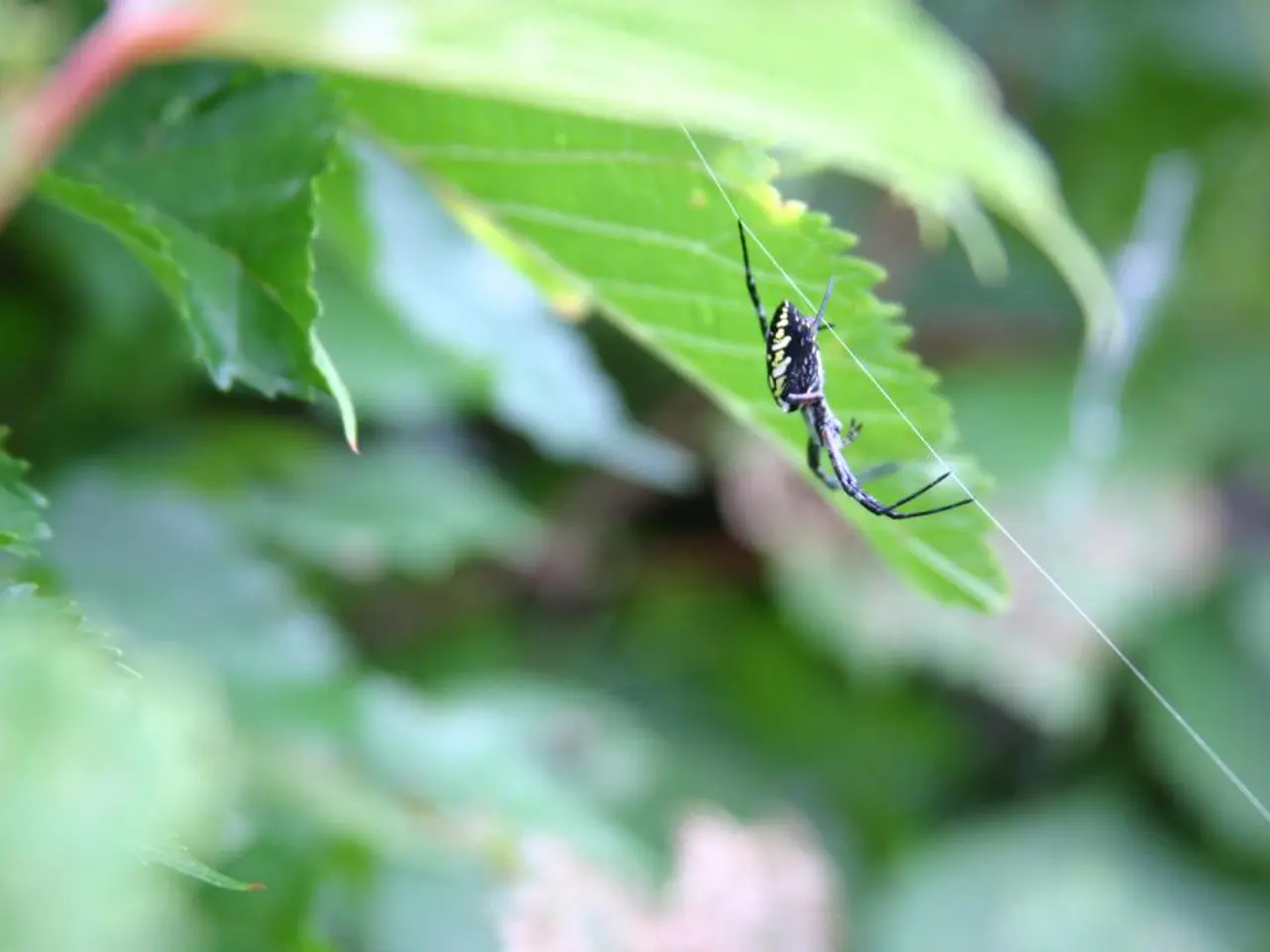Overcome spider infiltration indoors with these natural plant deterrents
In the quest for a spider-free home, especially during the autumn season, indoor plants have emerged as a natural and effective solution. Experts recommend adding certain aromatic plants to your living space to deter these eight-legged creatures.
According to Jo Lambell, Founder of Beards & Daisies, and Connor Towning, Lead Horticulturist at Beards & Daisies, the following plants are scientifically supported to repel spiders: lavender, peppermint, citronella, eucalyptus, and other unspecified plants.
Lavender, with its strong, sharp floral fragrance, is unpleasant and overwhelming to spiders. Caring for a lavender plant involves placing it near sunny windowsills, ensuring it has well-draining soil, and pruning it regularly for healthy growth and fragrant blooms.
Peppermint, known for its menthol content, also repels spiders and is effective for stopping ants from entering homes. Crushing a few peppermint leaves and placing them around corners or making a simple peppermint spray can provide an extra spider-deterrent boost. The peppermint plant, with its fast growth rate, can thrive in pots indoors or in small herb gardens.
Citronella, not only repels spiders but also mosquitoes and flies. Jo suggests keeping the citronella plant in a bright spot and trimming it regularly. A compact eucalyptus shrub is also available for spider repellent purposes. Eucalyptus leaves and essential oils repel spiders due to their strong scent. Dwarf eucalyptus varieties can be grown in bright, well-ventilated areas.
Rosemary and lemon balm are aromatic herbs that are great insect repellents. In addition to repelling spiders, rosemary can be used in cooking for added flavour.
Indoor spider-repellent plants should be placed in windowsills, entryways, and corners. Daily cleaning habits can also help deter spiders from entering a home.
Jo and Connor emphasize the importance of using scientifically supported evidence and avoiding reliance on myths or anecdotal claims when it comes to identifying plants that repel spiders. Jo, who discovered her passion for houseplants in 2001, started a business to make plant delivery more accessible and is also the author of The Unkillables. Connor, with five years of experience and a passion for plant science, plays an essential role in the plant industry.
Incorporating these spider-repelling plants into your home not only enhances your living space with their unique aromas but also helps keep spiders at bay.
Read also:
- Long-Term Prescription Drug Impact on Brain Function
- Benefits, sources, and supplements for Vitamin D and its role in addressing osteoporosis
- Diabetes Management during Pregnancy: Keeping Tabs on Blood Sugar Levels and Lifestyle Adjustments
- Life Expectancy with Interstitial Cystitis: Exploration of Research, Treatment Methods, and Additional Information




